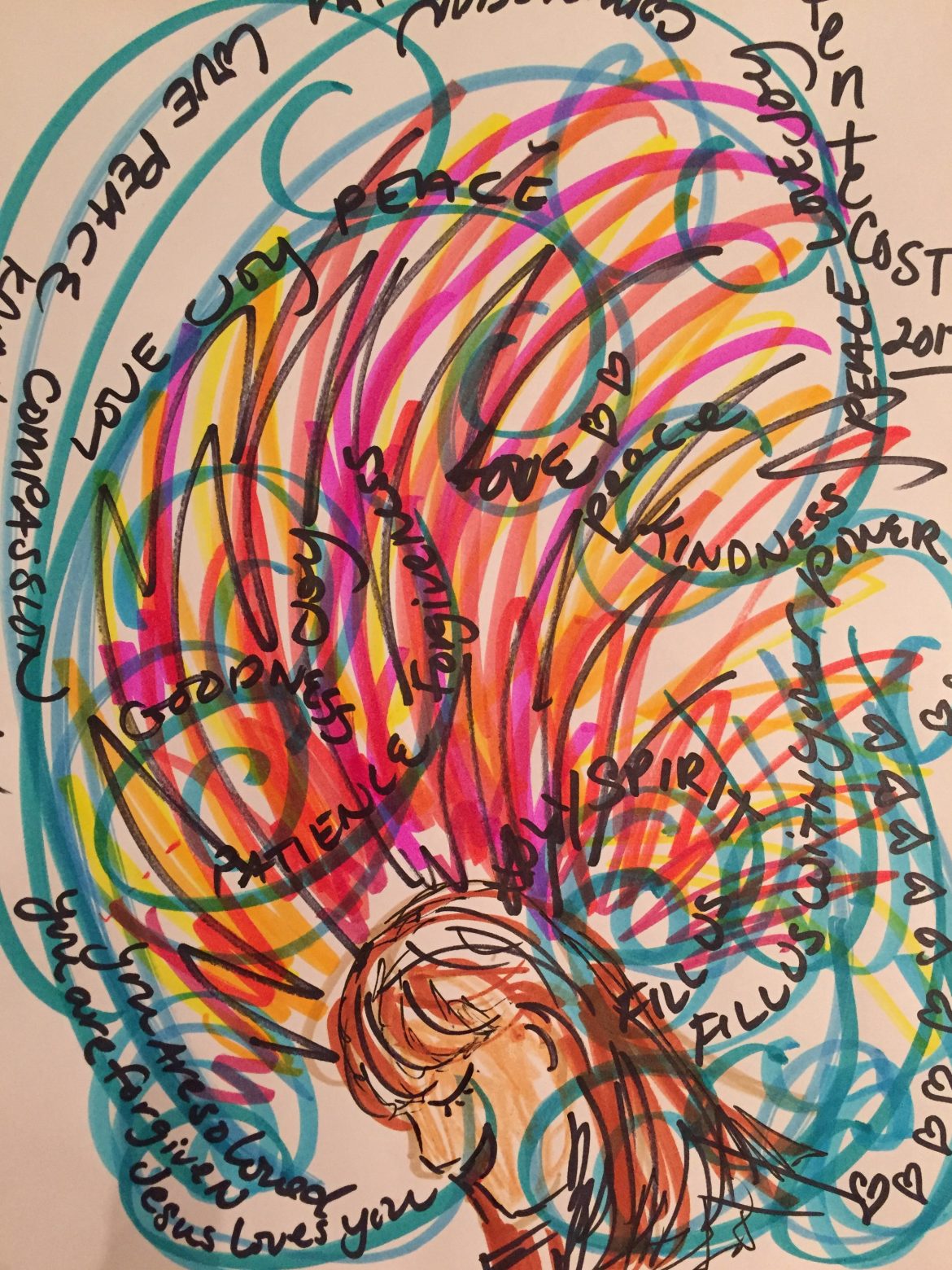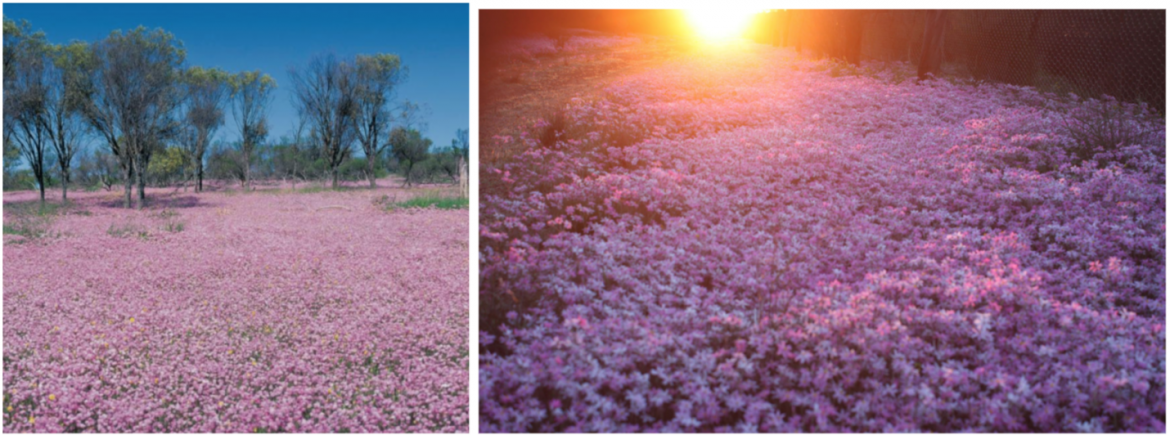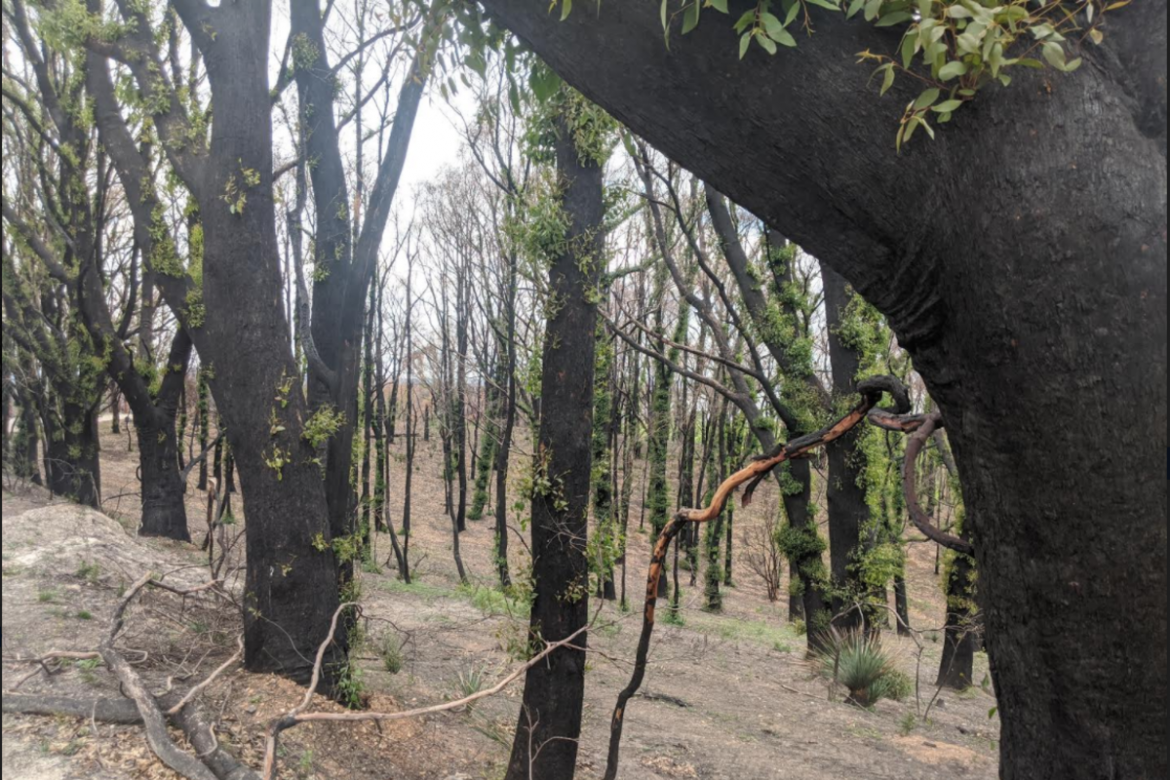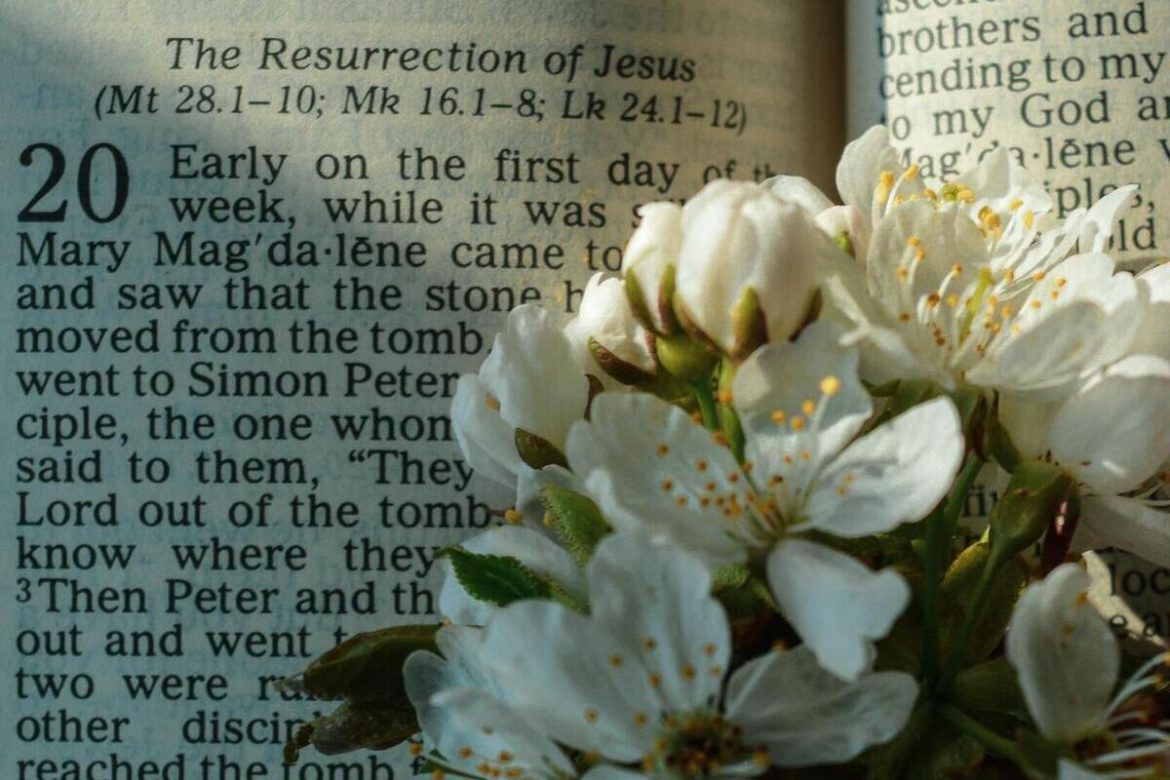by Rowan Wyatt
When I was young my love of the study of history was encouraged by the man who raised me, my grandfather Robert, himself an amateur historian and archaeologist. But my sphere of interest was steeped in Anglo-Saxon Britain, Ancient Egypt, and the Bible lands.
As I grew older, I developed a taste for the Medieval period and at a converging point a band I was into then (still am), Orchestral Manoeuvres in the Dark, released two songs which I instantly fell in love with and both were about the same person. The two tracks were named ‘Maid of Orleans’ and ‘Joan of Arc’. Knowing nothing about the history of her I decided in my youthful exuberant naivety to embark on a research project, unaware of the how the findings would shape me by inspiring such feelings of sympathy, anger, compassion, and rage.
In this short article I want to look at two key points in the tragedy of Jeanne d’Arc, these being Visions and Trial. There is not enough space to go into enough detail, so I urge you dear reader to further study.
Visions
At that time in 15th Century France there were prophecies abounding about the nation being saved by “A virgin from the borders of Lorraine who would work miracles”. There are other prophecies pertaining to women but this I feel is the key one that may have inspired Jeanne as a young girl. The visions Jeanne had consisted of her being visited by St. Michael, St. Catherine and St. Margaret where they instructed her to “Drive the English out of France and present the Dauphin at Reims for consecration”.
A struggle I have always had with ‘visions’ are that they can neither be proved or disproved, one can only accept the word of another that a vision is genuine or not. Certainly, at the time, Jeanne’s vision was accepted eventually by the French nation, after careful investigation into her background and testing her to check for heresy or ‘sorcery’, much like one would carry out a background check today.
In our time many, Christians, and Historians alike, dismiss Jeanne’s visions as delusion, deliberate lie or even Schizophrenia, though that last one is surely from those seeking to discredit her story as nastily as they can.
Again, it is impossible to know the validity of her visions and I have always struggled with any vision that has a call to war aspect to it, but then these abound in the Old Testament and we readily accept them. I for one feel, after much contemplation over the years, her visions to be real, the situations and development just would not have occurred had she just been a lying teenaged girl or suffering from a mental illness. Somewhere along the line she would have been found out and of course God does use the most unlikely of souls to do his will. In 15th Century Europe a teenage girl was by no means the most likely of souls to lead an army into battle, and there is no doubt the court of the Dauphin believed her.
Trial
I said in my opening that the story of Jeanne inspires anger and compassion in me, well it this part of her story that engenders those feelings.
On 23rd May 1430 Jeanne was eventually captured after an ambush at the battle of Compiègne. She was imprisoned at Beaurevoir castle but made several daring escape attempts, all of which failed until eventually following the guidance and negotiations of Bishop Pierre Cauchon (more of him later) she was sold to the British for the sum of 10,000 livres. She was transferred to Rouen where several attempts were made to free her and leading the French to threaten bloody reprisals if she was not released.
But sadly, all was in-vain and a show trial was convened, a Kangaroo court if you will.
The trial was to be led by none other than Bishop Cauchon playing his own political power game after already pleasing the British with his negotiation of Jeanne in the first place. He was not eligible to lead the trial; he was never officially appointed. The trial was nothing more than the premeditated murder of a young girl orchestrated by a bishop, putting power and glory before faith and the word of God. She was illegally refused French representation after multiple requests and so was left at the mercy of a court that was clearly partisan against her and with one outcome in mind.
Unable to convict her of Heresy she was however found guilty of the crime of cross-dressing. Many witnesses were able to attest having seen her in male attire and armour. Indeed, during her trial, she wore men’s clothing, the only thing available to her after having her dress stolen by guards whilst in custody. And so, having achieved their ends the young woman was executed in one of the more vicious methods employed at the time, burned at the stake. Afterwards the executioner expressed his feared damnation for his part in “burning a holy woman”.
Later in 1452 her trial was declared null and void and Jeanne declared a Martyr, Bishop Cauchon was ironically declared a heretic.
In 1909 Jeanne was finally beatified and canonised in 1920.
As a youth I was inspired by this tale of another youngster the same age as me leading armies, later I was inspired by her faith and courage and left saddened and horrified by her treatment and death. My ideas of Christian faith rocked by the machinations of a corrupt hierarchy in the church that was instrumental in Jèanne’s murder.
It became clear to me that whilst genuine faith and courage can be inspiring, faith can also be used and twisted into a weapon. Ploughshares have been shaped into swords far too often in the history of Christianity. Such things led me to be wary of believers, and if we can take one lesson away from Jeanne d’Arc’s sad tale, it is that the church’s own inhumanity (even to its own) is the witness that testifies most powerfully against the loving Gospel it is supposed to be spreading.
Photo by Rowan Wyatt, used with permission.
~Catherine Lawton (poem excerpted from Remembering Softly: A Life in Poems)
I don’t know about you, but in this season of Covid-19, I’ve found myself too often “staring at the sky” wondering where Jesus is, rather than living out the kingdom. Wondering why we cannot love one another? Often feeling defeated by the continued division of red verses blue, and brokenhearted by
the violence of racism by both police and this wicked virus.
I’m in need of the Comforter this Pentecost!
I’m in need of the One who is sent to come along side us and help us!
I’m in need of the Holy Spirit to remind me that Jesus will never leave us or forsake us and he promised to be with us in the hard stuff!
I’m in need of the Holy Spirit to be my teacher, reminding me of the things Jesus said about loving my enemies and praying for those who persecute.
I sure need the wind of the Holy Spirit to blow over me and through me and refresh me with the peace of Jesus in the midst of these stressful and uncertain times.
I’m in need of the gift of peace, realizing that I cannot fix others, I can only change myself and seek to be a peacemaker and a bringer of God’s light and love wherever i go.
On Sunday, we get to celebrate the coming of the Holy Spirit! We remember the day that those faithful men and women, and probably children too, received the promised Gift of the Spirit! It’s the day we celebrate the birthday of the Church with the arrival of 3000 joining in the community of the Followers of Jesus! This band of 150 who’d waited and prayed together over the past ten days were set on fire with a passion for Jesus and the world has never been the same! It was just the start of taking the light and love of Jesus to all the world!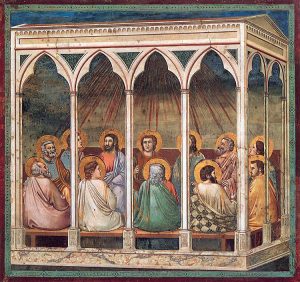
What do you notice that you haven’t noticed before?
What is God speaking to you about TODAY as you read this passage? Take time to read it again, use different translations to hear it in fresh ways.
What questions do you have? What questions come up as you read the passage. Talk to Jesus about them.
What aspect of the Holy Spirit are you interested in learning more about during this new season? The Power Gift Giving Holy Spirit? The Comforter who comes along side us? The Teacher, who reminds us of all Jesus did and said? Talk to God about this and ask the Holy Spirit to show you!
Who are people in your life who need to hear about Jesus in their own language? Think about your various groups of friends and the coworkers you have, or the clubs and organizations you belong to…pray for ways to share the love of Jesus with these people. Text someone, call someone, or send a card or a real note to encourage them since you probably haven’t seen them in real life for a long while.
Spend some time in the Book of Acts during the coming weeks. What do you notice? What surprises you? What is the Holy Spirit inviting you to do more of, or do less of in response?
CELEBRATE AT HOME!
Watch for signs of the Holy Spirit in your Life! Where do you feel God’s presence closely? Put out some matches or a lighter as a symbol of the Holy Spirit or Light a Candle each day as you work to remind you that the Holy Spirit is here!
Wrap yourself in a Blanket! As a Symbol of the Holy Spirit as the Comforter! Allow the Holy Spirit to comfort you in love and peace in the middle of this crazy time of Covid.
Get Outside and Stand in the Wind! Allow the Holy Spirit to blow over your body. Feel God’s Presence in the wind!
Be Honest with God …like the Disciples, you may still have doubts about what’s next, or doubts, fears or baggage around the Holy Spirit. Spend some time talking to Jesus about where you are. Take time to journal about what you know or what you don’t know about the Holy Spirit and write about your fears or frustrations. Give these to Jesus and allow Him to carry these for you.
Celebrate the Birthday of the Church! Throw a party. Make a cake or cupcakes! Make hats, cards and sing happy birthday! You might even throw a zoom party or a social distancing picnic if it’s allowed. You can share cupcakes with your neighbors!
What gift would you like to give the Church at large this year? What gift would you like to give your own church community? Write it down. Share it with a friend in your community and pray about this together.
Take time to pray for the Church in the World and your own Church Community! Get out a map and use it to pray with this week. Pray for churches to stand up to racism and division and bring love and compassion to hurting neighbors.
Wear the color RED on Sunday! It’s the liturgical color for the Feast of Pentecost.
Watch for RED things along your way. Have a scavenger hunt and look for all the RED things in your house or neighborhood! Allow the RED things you see to be reminders that the Holy Spirit is everywhere!
That’s a lot of things to try! The beautiful thing about Pentecost is that it isn’t just one day. In the church calendar, we get a season of Pentecost! We get time to live out and live into the experience and the receiving of the Holy Spirit. We get time to watch for and expect and experience more of the gifts the Holy Spirit brings!
May this Season of Pentecost bring you renewed Hope and great Peace in the middle of it all. 
©lillylewin and freerangeworship.com
by Rodney Marsh
Every Easter I feel a certain dissonance. The nature analogies (mainly English) for Easter carry little meaning where I live so I wrote the following to think about the church seasons in relation to my local seasons.
Christ is Risen – Alleluia
Every Easter many people notice the parallels between Jesus’ resurrection and Spring in the Northern Hemisphere where the sudden and dramatic birth of Spring is a powerful metaphor for Jesus’ rising from the dead. So, for example, flowering daffodils have become a traditional symbol for the Easter season.
Where I live, on Noongar land (South Western Australia) spring bulbs don’t flower at Easter but around September and, in tropical and temperate regions like Australia, there is no sudden change from the desolation of winter to the rebirth of spring. There are just two seasons in the sub-tropics -Wet and Dry, and in temperate regions the ‘rebirth’ of spring is not a useful symbol of Jesus’ resurrection for there are few flowers in March/April.
The changes of season occur so gradually in South Western Australia, where I live, that the Noongar people, who have lived on this land for sixty thousand years (!!!) identified six seasons to describe environmental changes. These seasons are marked by gentle, subtle changes in nature. However, there are many powerful plant metaphors for Jesus’ death and resurrection at Easter on Noongar land.
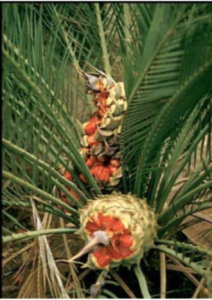
Zamia fruit
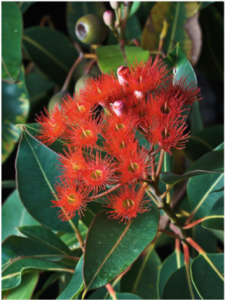
Red flowering gum
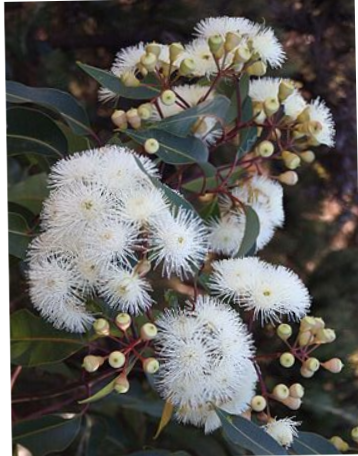
Marri flowers
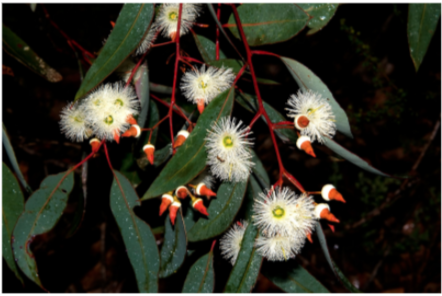
Jarrah flowers
In March and April, it is during the season of Bunuru (the time of adolescence) followed by Djeran (the time of adulthood). During this time, nature remind us of the cross of Christ through the flaming red Zamia nuts (Macrozamia riedlei) and the spectacular flowers of the Red flowering gum (Corimbia ficifolia). The white flowers of the jarrah and marri trees remind us of the freedom and victory of the resurrection.
On Noongar land, we must wait through a season of rain (Makuru, June -July – the season of fertility) to observe the effects of Easter. During Makuru the bush has few flowers, but the plants, during the rain, chill and darkness of winter are preparing for the floral abundance of Djilba and Kambarang (the spring seasons – August to November). During Djilba (conception) and Kambarang (birth) the bush bursts into flower. It seems, on Noongar land, that land’s spectacular floral display relies upon Easter rains and It is during the season of Pentecost, celebrating the gift of the Spirit, that nature here celebrates the results of season of Easter. For instance, consider the local daisies, commonly call ‘everlastings’ (Rhodanthe chlorocephala). In the dry northern Noongar lands, these ‘everlastings’ form a spectacular flower carpet during July/August to welcome the season of Pentectost. These ‘paper’ daisies are called ‘everlastings’ because, if they are picked at the time of flowering and dried, they retain their colour for many years. The local ‘rule’ is that “if it doesn’t rain by Easter, don’t bother travelling to see the flowers in the Northern Wheatbelt. They won’t be there.” These beautiful flowers are just one of hundreds of species of flowers endemic to Noongar lands, identified as one of the world’s biodiverse hotspots.
The Spring flowers on Noongar land provide a wonderful annual reminder of the everlasting effects of Jesus’ death and resurrection at Easter through the gift of the Spirit at Pentecost.
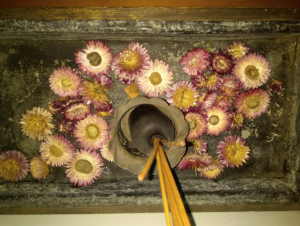
Ten year old Everlastings in hall stand – photo by Rodney Marsh
What annual ‘nature’ reminders of Jesus’ story do you have in your local area? Give thanks!
***Featured photo: Everlastings pictured in Northern Noongar land by West Travel Club and Visit Perenjori
I read about the story of God in the Bible but in the garden, I see it lived out. Every time I plant a seed, bury it in the ground and watch it spring into life, I feel I have entered into the life, death and resurrection of Christ. It is so hope giving.
This course includes video sessions with Christine Sine, downloads of prayers and handouts for each session, and “Walk Through the Garden” videos with guest gardeners are just some of the offered materials included in this online experience. We have really enjoyed putting this together and we hope that you enjoy it as well! You can preview a video in the first module for free before you buy.
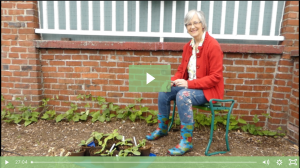
Module 5: Liturgical Gardening
Course Outline
- Welcome to the Spirituality of Gardening – FREE PREVIEW!
- Gardening with God as a Spiritual Practice
- Organic Gardening 101 – Gardening Basics Enliven Our Faith
- Creating a Sacred Space in the Garden
- Liturgical Gardening – Exploring Rhythms and Seasons
- Creativity and Contemplative Gardening
A month after the devastating Australian bush fires were extinguished, we visited the Adelaide hills. We stood on a hill overlooking a vineyard and saw the distinct line where the fire stopped just short of the vines. Beyond that line, the land was scorched. As we drove out of the hills, we went through the blackened zone. Just a couple of miles down the road, I called for our friend to stop the car so that I could get out and look. Here, just weeks after the fire, green was sprouting energetically from forests of charred trees. Life amidst devastation, beauty from ashes, hope from loss and despair. Life often incubates in the darkness until it is developed enough to see the light and be exposed. Seeds are hidden in the dirt, secret and unseen until they sprout and push through the dirt to unfurl their leaves to the sun. In the darkness of the womb, we grow slowly and intricately until we can survive the beauty and trauma of birth. Sometimes, when I am in the middle of grief or difficulty, it seems that all is dark, broken and dying. The darkness creeps at the edge of my soul, whispering that something is wrong, that I am alone. It can be hard to see what lies beyond the ashes. It takes faith to have the hope of newness and rebirth when we cannot see it for ourselves. In a recent difficult time, as I was sitting in silence, I got a picture in my mind. I was sitting in a dark room, with my legs crossed on the floor. As I sat there, God entered the room and sat facing me, crossed legged on the floor and placed hands on my knees. God said, “It’s okay. We can sit here together in the dark as long as you need to.” The good news is that God sits with us in the darkness, companions us through the unknown and uncertainty. When the time is right, the light will come, the darkness recede, the sprouts will emerge.…just like the scorched trees bursting forth in green. After all, this is the work that Jesus came to do:
The Spirit of the Sovereign Lord is on me,
because the Lord has anointed me
to proclaim good news to the poor.
He has sent me to bind up the brokenhearted,
to proclaim freedom for the captives
and release from darkness for the prisoners,
to proclaim the year of the Lord’s favor
and the day of vengeance of our God,
to comfort all who mourn,
and provide for those who grieve in Zion—
to bestow on them a crown of beauty
instead of ashes,
the oil of joy
instead of mourning,
and a garment of praise
instead of a spirit of despair.
They will be called oaks of righteousness,
a planting of the Lord
for the display of his splendor.
Isaiah 61
Where have you felt loss, death or despair? How can you make friends with the darkness of unknowing, the hiddenness of what is to come? Where do you sense God’s companionship in the dark times? What is being incubated in you in this season of darkness? Where is life sprouting from the ashes in your life?
by Rodney Marsh
I believe in the Resurrection of the body. In particular, Jesus’ body. Why?
When I first began to follow Jesus I was taught that Jesus rose from the dead and that the evidence for his resurrection (the tomb was empty, he was seen and the resurrection of Jesus is the most reasonable explanation of the church’s existence) was convincing to any who would fairly investigate. And throughout history, many have become convinced of Jesus’ risen status because of these historical reasons. However, this evidence seems convincing when presented to the convinced or attracted, but still fails to persuade many agnostics and atheists. They remain skeptical, along with many Christian believers, because the ‘rational’ truths of Christianity cannot be subject to the accidents of history (Lessing). Historical ‘evidence’ is not sufficient reason to believe and proclaim “Jesus is risen” nor to say “I believe in the resurrection of the dead”. The reasonableness of the evidence for the resurrection of Jesus is only part of the picture.
I have always impressed by the frankness of Peter’s confession of Jesus as the Christ as presented in John 6, “Master, to whom would we go? You have the words of real life, eternal life.” That is, “I’ve looked and there don’t seem to be any viable alternatives”. I have a similar reaction to Jesus’ bodily resurrection: I have not found an alternative explanation that explains the ‘fulfilling life’ Jesus offers. Three essential beliefs of the Christian Faith – the Trinity, the Incarnation, the Resurrection – are all like this. They are all ‘post-Biblical’ and came about because, if we proclaim “Jesus is Lord”, there seems to be no viable alternative to these beliefs. It is belief in the incarnation, resurrection and Trinity, that give coherence to our (the church’s) experience of the love of God in Jesus through the Spirit and these beliefs are tied together in an eternal dance of dependence on one another. The incarnation, resurrection and trinity are not literal statements of belief extracted from Bible verses, but, without them, what the Bible says about God, Jesus and the Spirit cannot be true. Like the famous three-legged stool – each is necessary but no one is sufficient to make the stool stable.
This necessity applies, in particular, to belief in Jesus’ material/bodily resurrection from the dead. In our scientific materialistic age, the reality, necessity and believability of Jesus’ bodily resurrection has been questioned by many followers of Jesus. In addition, requiring belief in a physical resurrection seems to be an unnecessary barrier to faith in the modern age. I think this view mistaken.
Why? For me, three reasons not drawn from history or reason, but experience, make the resurrection of the body essential.
- Jesus’ earliest followers believed that God made and loves the material creation. They even claimed, post resurrection, that Jesus was involved in the creation of all things. They further believed that creation (and we ourselves) will one day, be set free from decay. Believers will be raised from the dead and be forever with the Lord. Many Christians believe Jesus restoration of creation and our resurrection, to be part of the metaphorical meaning Jesus’ resurrection. And it surely is, however, Paul explicitly ties the restoration all living and non-living creation to Jesus’ (and our) material resurrection. These earliest Jewish/Christian beliefs in restoration and resurrection tie the Creator God in a continuing intimate and eternal involvement with the material creation. The ‘metaphorical’/spiritual alternative to Jesus being physically raised breaks this link. I cannot believe it. Such a use of metaphor ‘mocks God’ (Updike) and is a ‘slippery slope’ to a gnostic/spiritual creator or Deism of some version of Scientism (matter is all there is). These idols are aliens in a Jesus’ world. Such a god (why only one?) is more interested (or uninterested) in a metaphorical/spiritual (or separate) world than in the one real and beautiful material/spiritual world which I experience around me. I cannot and will not believe in such god(s).
- My experience of Christian contemplation/meditation or the ‘prayer of the heart’ has convinced me that my body is a necessary part of my relationship with God. My physical body is who I am and is, in a sense, all I am (I am a scientific materialist in that respect). My material body is essential to my experience of faith and life. Meditation has taught me that my body is more essential than my thoughts or emotions. The discipline of Christian meditation or contemplation requires stillness of body. Without stillness of body we cannot begin to still our minds and when our body is still and we work on stilling our mind (thoughts, plans, desires, regrets, feelings etc…), then we discover the transformation that takes place by participation in ‘being’ with/in Jesus. My body is an essential element in this process. It is not an unfortunate ‘addon’. Can it be that the decaying humanity of my earthly tent (now the agency for my relationship with God), will not be changed in the twinkling of an eye into an eternal home for/with God (2 Cor 4:16, 5:1)? I think not, for God values me (my body) and all creation.
- My bodily senses are my only access to the present moment and the present moment is my access to the eternity of the present moment. Not my rationality. When thoughts form, I am attempting to use my mind to observe, describe, categorise, understand or analyse the experience of the present moment, the present moment has already passed into the “nonexistence”. Thinking about the past or the future can never substitute for the immediacy of life in the present moment. The present moment can never be captured but can only be lived, and so eternal life is where there is no past or future but where God is, in the present moment. The decaying humanity of my earthly tent already contains the eternity of the present moment and my body, in particular my senses, are essential to my experience of ‘now’ and so to my participation in eternity. One day I shall leave this body of death and enter that timeless present, forever with the Lord. Is my bodily ability to experience the present moment “the (bodily) pledge of our inheritance toward redemption as God’s own people” (Ephesians 1)? If so, I believe my material body is (and will be) part of the resurrection because it is part of the created “heavenliness” of all things. As to the form of my resurrected body, I am not so much a fool as to comment (1 Cor 15:35ff).
“And in this he showed me a little thing, the quantity of a hazel nut, lying in the palm of my hand, as it seemed. And it was as round as any ball. I looked upon it with the eye of my understanding, and thought, ‘What may this be?’ And it was answered generally thus, ‘It is all that is made.’ I marveled how it might last, for I thought it might suddenly have fallen to nothing for littleness. And I was answered in my understanding: It lasts and ever shall, for God loves it. And so have all things their beginning by the love of God. In this little thing I saw three properties. The first is that God made it. The second that God loves it. And the third, that God keeps it.” Julian of Norwich ― Revelations of Divine Love
As an Amazon Associate, I receive a small amount for purchases made through appropriate links.
Thank you for supporting Godspace in this way.
When referencing or quoting Godspace Light, please be sure to include the Author (Christine Sine unless otherwise noted), the Title of the article or resource, the Source link where appropriate, and ©Godspacelight.com. Thank you!



